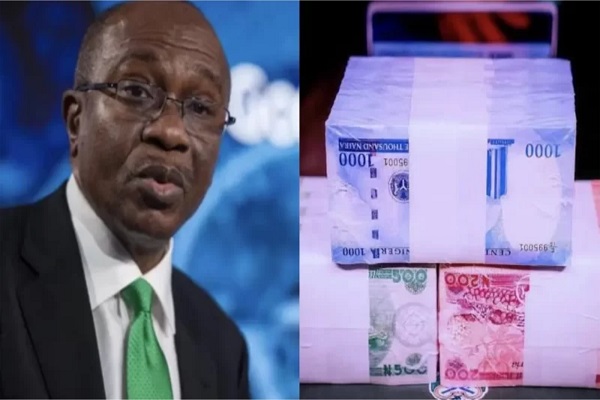2023 ushered Nigerians into a regime of unmitigated suffering occasioned by the combined effects of a government policy of Naira Redesign and inexplicable hike in price of petrol.
The Naira Redesign policy which was introduced by the Central Bank of Nigeria (CBN) in December 2022 involved the introduction of new 200, 500, and 1,000 denominations of the Naira. The old and new versions were to circulate side by side until the old version would be withdrawn from circulation as legal tender on January 31, 2023. The CBN said one of the objectives of the policy was to encourage cashless monetary transactions through the various digital channels.

As the deadline for the withdrawal of the old notes drew nearer, the new notes became unavailable, contrary to expectations, putting commercial and daily life activities across Nigeria under pressure. The scarcity of new Naira notes worsened amidst equally worsening petrol supply crises, despite the extension of the deadline for acceptance of the old Naira notes as legal tender to February 10.
Most Nigerians could not access either the old notes or the new ones, throwing commercial and daily life into confusion and agonies.
The commercial banks stopped dispensing the old notes while they claim the new notes were not sufficient to meet demands either at the Automated Teller Machines (ATMs) or over the counters in banking halls.
In a bid to enhance the circulation of the new naira notes and in preparation for the February 10 deadline for the old notes, the CBN, directed banks to stop dispensing old currency notes.
However, the development, coupled with the continued shortage of the new naira notes made it more difficult for many Nigerians to engage in any form of commercial transactions including regular daily living.
Points of Sale (PoS) operators who had limited cash took advantage of the situation to make brisk business by charging high premiums on cash supply where N100, N500 and N1,000 were charged customers for withdrawal of N1,000, N5,000 and N10,000, respectively.
The Director-General of the Lagos Chamber of Commerce and Industry (LCCI), Dr. Chinyere Almona, said: “Businesses are suffering the consequences of the Central Bank of Nigeria (CBN) currency management policy lapses. Regarding the deadline extension for phasing out old notes, LCCI does not see any value in this if the scarcity of the new Naira notes persists.
“While we support the drive toward a cashless economy, redesigning the Naira and phasing out old currency notes could have been better planned and implemented with no hardship for businesses and individuals…

“We regret to note that expectations have been dashed, business deals impeded, and loss of time and value experienced by many. CBN needs to enlighten the public on grey areas about the scarcity of the new Naira notes in addition to strengthening its policy implementation capacity. This is the minimum expectation in the face of a currency crisis in which we find ourselves.
“The new Naira redesign has triggered varied reactions and feedback that suggest that related issues like the phasing of old currency notes, withdrawal limit, and the scarcity of new notes may have started to impact businesses and social livelihood beyond intentions. While banks have endeavoured to meet the currency demands of their customers through Automatic Teller Machines, and electronic transfers, the scarcity of the Naira has rendered their efforts ineffective.”
As the scarcity of old and new naira notes worsened, peasants in some rural communities returned to trade by barter, the direct exchange of goods for goods or services, considered the oldest form of commerce. Many traders did not want transfers because of network problem.
In some states, like Enugu and Oyo, the situation degenerated into street protests. Residents in Enugu metropolis mounted non-violent protests in different parts of the state capital city, raising objections against exorbitant prices of petroleum products and lack of physical cash to conduct business.
A liter of Premium Motor Spirit, sold for N450 against the official price of N187 despite its non-availability in most filling stations. The situation was compounded by lack of access to cash, while money transfers and POS services experienced high hiccups.
Queues built up at all the ATMs, transporters in the city jerked up fares as few commercial and private vehicles plied the roads. Irked by the compounded hardship, residents took to protests in New Haven, Old Park, Zik Avenue, Agbani Road and other parts of the state capital where tricyclists, bus drivers and even private vehicle owners blocked roads and chanted anti-President Muhammadu Buhari songs. They asked all operating filling stations to close businesses, saying that Nigeria had slid into a failed state.
A similar scene played out in Ibadan, Oyo state, and other cities.
It took a Supreme Court order obtained by a group of states to compel the CBN and the Federal Government not to enforce the deadline for the withdrawal of old notes as legal tender before the situation eventually normalized.






